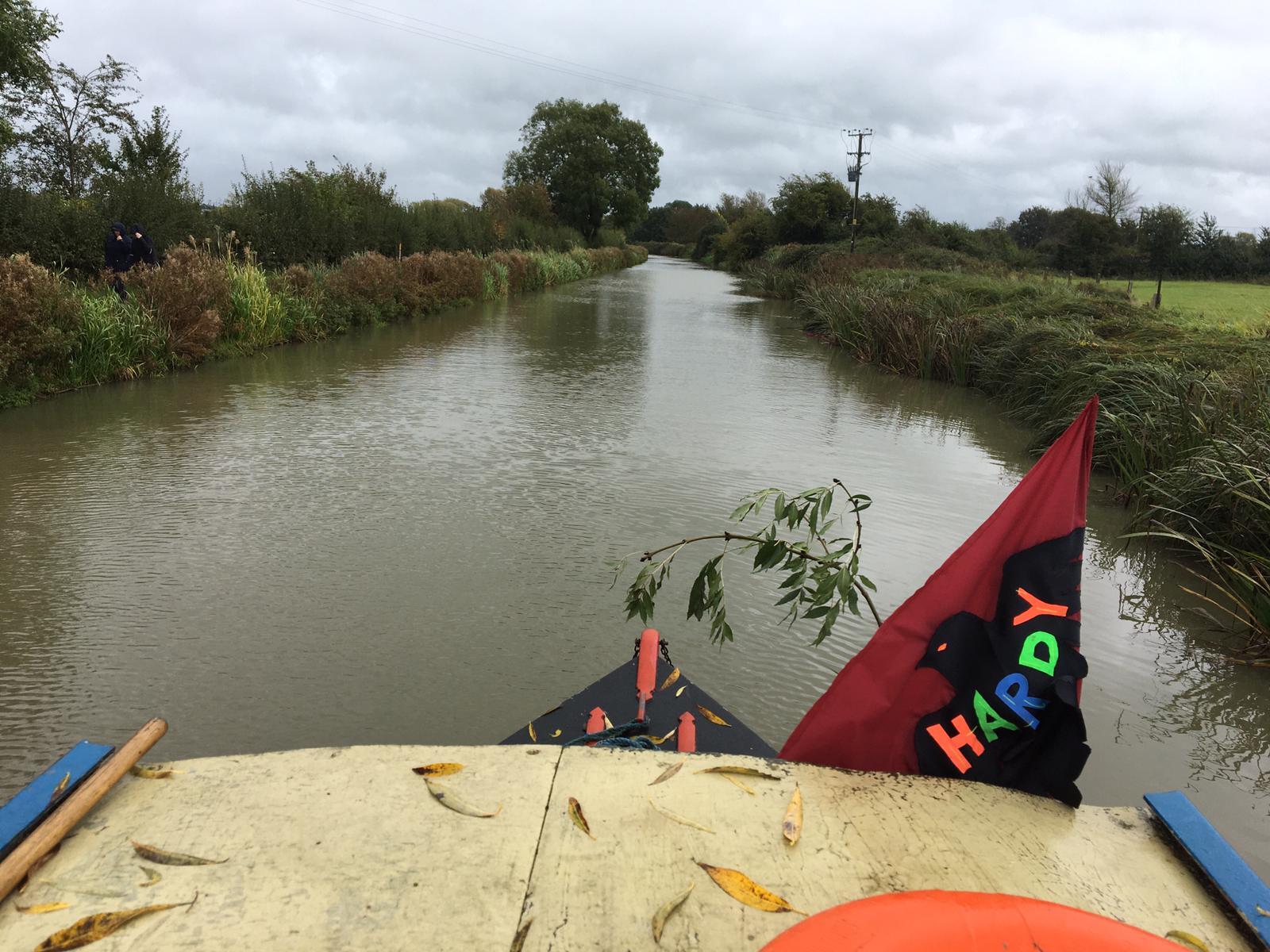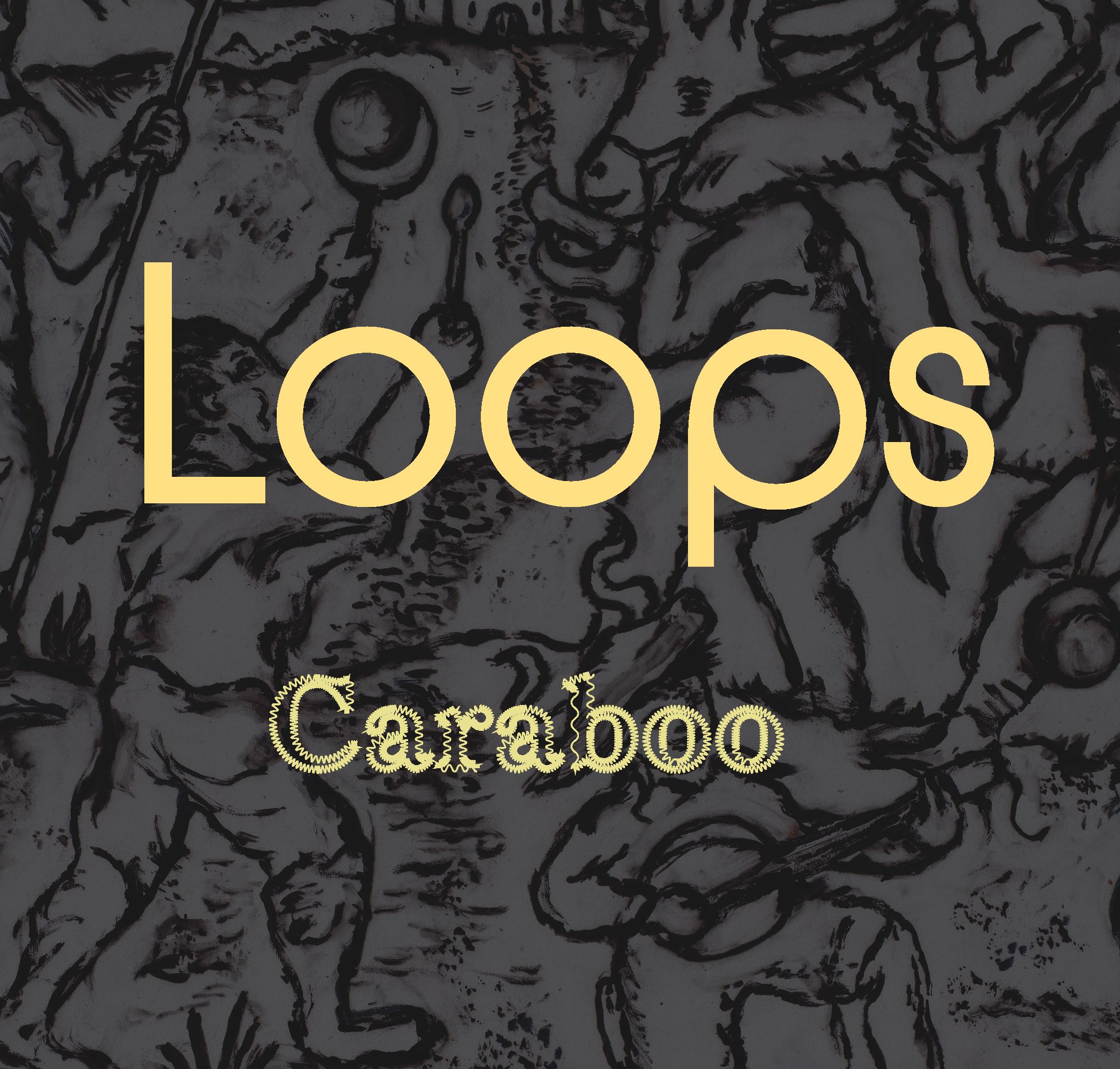
Caraboo Loops is a monthly podcast transmitting our collective curiosities and ambient wanderings of Bristol and further a field. In each episode, we collaborate with a guest artist, cultivating conversations around social histories, folklore, arts, music and everything else that falls between the cracks.
Episodes

Tuesday Apr 12, 2022
Two Black Boys - Part 2
Tuesday Apr 12, 2022
Tuesday Apr 12, 2022
In part two of this episode, artist, researcher and writer Dan Guthrie looks at public responses to the ongoing ‘culture wars’ over statues in the UK, from the Government’s tweaks to legislation surrounding the removal of statues to the online comments made about a consultation happening in Dan’s hometown of Stroud.
Dan Guthrie is an artist, researcher and writer whose work often explores representations of Black Britishness, with an interest in examining how they manifest themselves in rural areas.
His work has been screened at Alchemy Film and Moving Image Festival, Focal Point Gallery, Obsidian Coast and the ICA, and he has previously worked as a submission viewer for London Short Film Festival and Glasgow Short Film Festival.
At the moment, he is developing a new body of work investigating historical and contemporary Black presences and mis-presences in his hometown of Stroud, working across moving image, sculpture and writing.
He is currently a participant in East Bristol Contemporary’s Day School programme, a panel member for Stroud District Council’s review of statues, buildings, streets and monuments, and a part-time librarian.
He lives and works in Stroud, Gloucestershire.
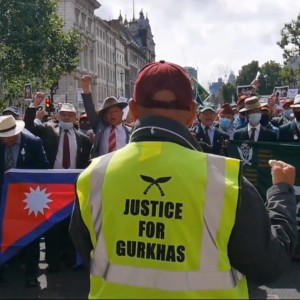
Tuesday Apr 05, 2022
Nepali/Gurkhali
Tuesday Apr 05, 2022
Tuesday Apr 05, 2022
In this podcast we will follow the voice of Premila Tamang, presenting over 200 years of history between Nepal and Britain. Intended to make a clear introduction of Nepali/Gurkhali, a recent demography to be recognised within British society, as well as highlighting ongoing issues of Gurkha veterans, and the importance of identity as the diaspora integrate further here in the UK.
As an artist Diwas Dewan is interested in making works that represent various Nepali/British experiences. He is inspired by many migrants who made their journeys and how they re-established themselves in the UK. So far, Diwas is aware his practice has always been about duels to enable himself to communicate simplifying dialogues. Him, being part of two cultures and languages must have something to do with it. Diwas is also a member of “Out The Window” an art collective with friends and many associates, all glad to be practising amongst each other here in Bristol.
Premila Tamang aka Premila van Ommen, is a PhD Candidate in Cultural Studies at the London College of Fashion, University of Arts London. Her research focuses on the impact of military Gurkha heritage in the cultural expressions of young Nepali men in the UK. She is also the director of the campaign group Gurkha Equal Rights. She is a member of the Haatemalo Collective, a global diasporic network of Nepali artists, academics and activists. She is also the curator of several online photo archival projects including Urban Arhats, founder of Himalayan food collective Yak Bites, and the Afro-Nepali arts movement MOMOLIFE.
A full transcript is available on our website.
Edit, Mix and Original music: Rowan Bishop https://www.rowanbishop.co.uk/
This episode was commissioned by Caraboo Projects and kindly supported by Arts Council England
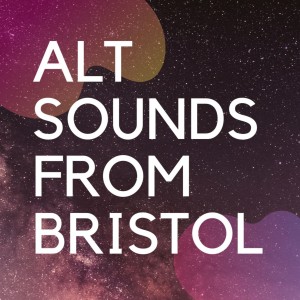
Tuesday Mar 29, 2022
Alt Sounds from Bristol
Tuesday Mar 29, 2022
Tuesday Mar 29, 2022
Screens, along with #ScreenFatigue, increasingly dominate our online interactions with people and cities. Should audiences have to, or want to turn screens off, how might they sense the colours or shapes that are displayed in their virtual worlds? Taking audio as a starting point, the episode traces my journey as collaborators and I pursue the challenge of remotely experiencing the visual impressions of Bristol’s Clifton Suspension Bridge through sound.
Harshadha Balasubramanian is a doctoral candidate in the Department of Anthropology at UCL and a fellow at the Critical Design Lab. Harsha’s PhD explores how UK artists who adopt virtual reality (VR) are transforming knowledge about what and whom VR is for. She foregrounds her own experiences of disability to creatively reimagine sensory encounters with media, drawing on a background in performance and journalism to co-produce these ideas in communities with whom she collaborates.
A full transcript is available on our website.
Edit, Mix and Original music: Rowan Bishop https://www.rowanbishop.co.uk/
This episode was commissioned by Caraboo Projects and kindly supported by Arts Council England
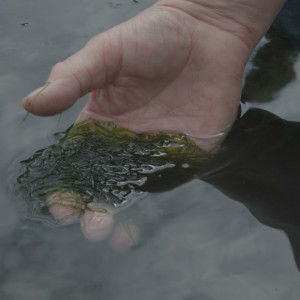
Tuesday Mar 22, 2022
Free, Bold and Joyous (conversations with seaweed)
Tuesday Mar 22, 2022
Tuesday Mar 22, 2022
In this episode artist, curator and educator, Bryony Gillard interviews people who have found their lives or research intertwined with seaweed. Through the lens of environmental justice, marine biology, community activism and media theory, their conversations explore seaweed’s slippery relationship to place, identity, community and responsibility.
Bryony Gillard is an artist, curator and educator with an MFA from the Dutch Art Institute, School for Art Praxis.
Situated between writing, workshops, performance, video and exhibition making, her practice reflects upon events, creatures and ideas that refuse to be pinned down or categorised. Through a process of both uncovering and layering ideas, herstories and conversations, her work attempts to create a space for generations of intersectional feminist practice that are elusive, messy and entangled in contemporary concerns. She is drawn to thinking with and through the more-than-human-world and is committed to intersectional feminist and anti-colonial doings underpinning her practice and approach.
Recent projects include a solo exhibition at Jerwood Arts (London) in 2021 and a commission with the University of Bristol Doctoral College in 2022. Her work has been commissioned and presented on a variety of national and international platforms including ESTUARY (Kent), Holden Gallery (Manchester), Cinema Maison at BB15 (Linz), Ocean Archive Programme at TBA21 Academy (Venice), Arnolfini (Bristol), The Royal Albert Memorial Museum (Exeter), FLATLAND Projects (Hastings), De Pimlico Projects (London), The Arts Institute (Plymouth) and Turf Projects (Croydon). She was included in the Tate touring exhibition, ‘Virginia Woolf: an exhibition inspired by her writings’ and awarded the 2019 Royal Albert Memorial Museum artist commission.
She is an associate lecturer on MA Fine Art at University of Gloucestershire and BA Fine Art at University of the West of England and facilitates creative workshops with adults and young people.
A full transcript and research material collected by Bryony is available on our website.
Edit, Mix and Original music: Rowan Bishop https://www.rowanbishop.co.uk/
This episode was commissioned by Caraboo Projects and kindly supported by Arts Council England
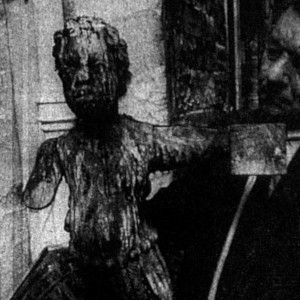
Tuesday Mar 15, 2022
Two Black Boys - Part 1
Tuesday Mar 15, 2022
Tuesday Mar 15, 2022
We're back! After just over a year since our last episode we have 5 very exciting new episodes to share with you all!
In part one of this episode, artist, researcher and writer Dan Guthrie uncovers the history of an object in his hometown of Stroud called the Black Boy Clock, from its creation in the midst of the transatlantic slave trade to its restorations in the late twentieth and early twenty-first centuries.
Part two of this story will be released on the 12th April.
Dan Guthrie is an artist, researcher and writer whose work often explores representations of Black Britishness, with an interest in examining how they manifest themselves in rural areas.
His work has been screened at Alchemy Film and Moving Image Festival, Focal Point Gallery, Obsidian Coast and the ICA, and he has previously worked as a submission viewer for London Short Film Festival and Glasgow Short Film Festival.
At the moment, he is developing a new body of work investigating historical and contemporary Black presences and mis-presences in his hometown of Stroud, working across moving image, sculpture and writing.
He is currently a participant in East Bristol Contemporary’s Day School programme, a panel member for Stroud District Council’s review of statues, buildings, streets and monuments, and a part-time librarian.
He lives and works in Stroud, Gloucestershire.
danguthrie.net / instagram.com/danglefree
A full transcript and research material collected by Dan is available on our website.
Edit, Mix and Original music: Rowan Bishop https://www.rowanbishop.co.uk/
This episode was commissioned by Caraboo Projects and kindly supported by Arts Council England
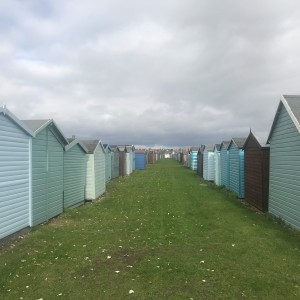
Monday Dec 07, 2020
Edging Home
Monday Dec 07, 2020
Monday Dec 07, 2020
This is the last episode before Christmas and we have a special episode for you from Leeds based artist and writer, Samra Mayanja.
Samra Mayanja moved to the town of Harwich (Essex Coast) when she was about 5 years old. Just before Christmas break in year 9 her English teacher Miss Limer handed her a Tesco carrier bag full of books, books by black female writers including Toni Morrison and Maya Angelou and Malorie Blackman.
Over the last couple of years Samra has trekked to different towns on the British coast talking to people about change. Now Samra is returning to Harwich, the place of her childhood, in search of her school teachers and begins to reimagine from this pocket of the country and of her memory.
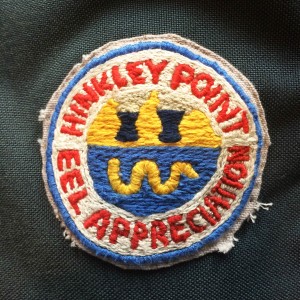
Monday Oct 26, 2020
Thinking with Eels
Monday Oct 26, 2020
Monday Oct 26, 2020
Whilst walking along a river, near the outskirts of the city of Bristol, researcher & writer Ben GJ Thomas came across a faded noticeboard, likely put up by the council during a more utopian time of public education. There were big italic letters, and a drawing of an eel with what can only be described as a grin. The board explained how eels start life in the Sargasso Sea, just north of Bermuda; a space both mythic and real in equal measure. They are carried along the gulf stream, up the coast of North America then out across the Atlantic. As such, eels populate river systems on both sides of the ocean. Here in the River Severn, young eels arrive on a high tide in late spring. They choose to call this river home for many decades before returning across the ocean once more, to reproduce and ultimately die.
In this episode, Ben explores the role of eels in shaping lives across both shores of the Atlantic. The story takes us on a journey from a monastery in medieval England, to the fight to uphold Indigenous fishing practices across so-called Canada today. Through conversations with writers and philosophers, we explore why eels matter, asking what it means to think alongside this endangered creature.
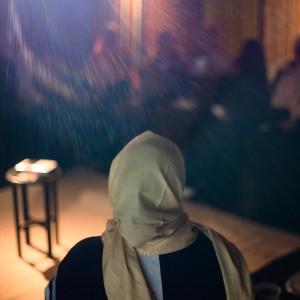
Sunday Sep 06, 2020
Cassette Letters
Sunday Sep 06, 2020
Sunday Sep 06, 2020
In this episode researcher and creative producer Fozia Ismail explores the use of cassette tapes in the Somali Community during migration. Through conversations with other artists, archivists and musicians we learn about the emergence of tape, its appropriation by different diaspora communities to send messages to families in other countries, and the ethical questions raised on how these remaining tapes are preserved and used today.
Growing up in the UK, Fozia remembers her family recording on cassette tapes and sending them to relatives abroad. Some of these tapes she later found still remain today, offering a rich and important snapshot of Somali oral tradition and culture before and after the onset of the civil war.
Fozia also spoke with Wajid Yaseen, artist and director of the sound art research cooperative Modus Arts, about his work Tape Letters, archivist Ibrahim Hirsi about Waaberi Phone, founded to support Somali artists in taking ownership over their music and intellectual property, artist and poet Asmaa Jama about her own families experiences around cassette tapes, and Hainbach, an electronic music composer and performer to talk about Destruction Loops, work which uses sharp or abrasive objects including a scalpel, a boxcutter and sandpaper on tape loops that contained recordings of hateful comments from youtube channels.
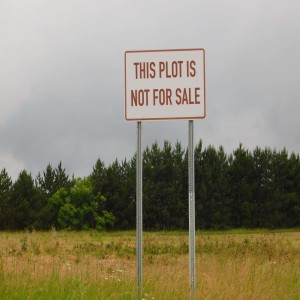
Sunday Aug 02, 2020
The Plotlanders
Sunday Aug 02, 2020
Sunday Aug 02, 2020
The Plotlanders were a radical DIY community who acquired plots of land through auction after the agricultural depression in the late 19th century. Mainly consisting of working class people, they acquired plots of lands from £5 a plot. The Plotlanders held ‘back to the land’ ambitions and built weekend retreats and smallholdings through alternative processes and local salvaged materials. However, in 1949 Basildon was designated as a New Town, which led to the compulsory purchase and demolition of the Plotlands.
In this episode, we dive into the phenomena of the Plotlanders with artist Shaun C Badham and explore them in context with current issues of land ownership, the self-build movement, and artist projects that re-address our relationship with land, agriculture and each other. As we’re waking up to a new landscape post COVID-19, some people are beginning to reflect if they can continue do their jobs remotely, there-fore the requirement to live in or as close to a city is questioned. More seriously the pandemic has spotlighted the inequities of access to green and outdoor space in lower income neighbourhoods and its impact on the health of its communities.
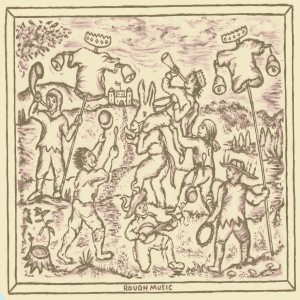
Tuesday Jun 23, 2020
Rough Music
Tuesday Jun 23, 2020
Tuesday Jun 23, 2020
This episode explores the folk custom, Rough Music in relation to public shaming with Bristol based artist Jessica Akerman. Rough Music was and is found in many societies across the globe. In this episode we concentrate mainly on Rough Music in the UK, but look further afield to examine how similar forms of cultural expression are used for the purposes of humiliation and protest, but also celebration and community cohesion.
To get a snapshot of Rough Music and public shame in this moment in time, we spoke to a composer and sound artist about his work reviving rough music, a folk music researcher on the history of rough music, an art historian and a musicologist on the role that music and noisemaking plays in protest, shame and social justice. We also spoke to one of the biggest MCs on the battle rap scene in the USA about public shaming as performance and the feeling of being on the wrong side of the crowd, as well as her thoughts on the role of chanting and noise making at the recent Black Lives Matter marches she attended in New York.
